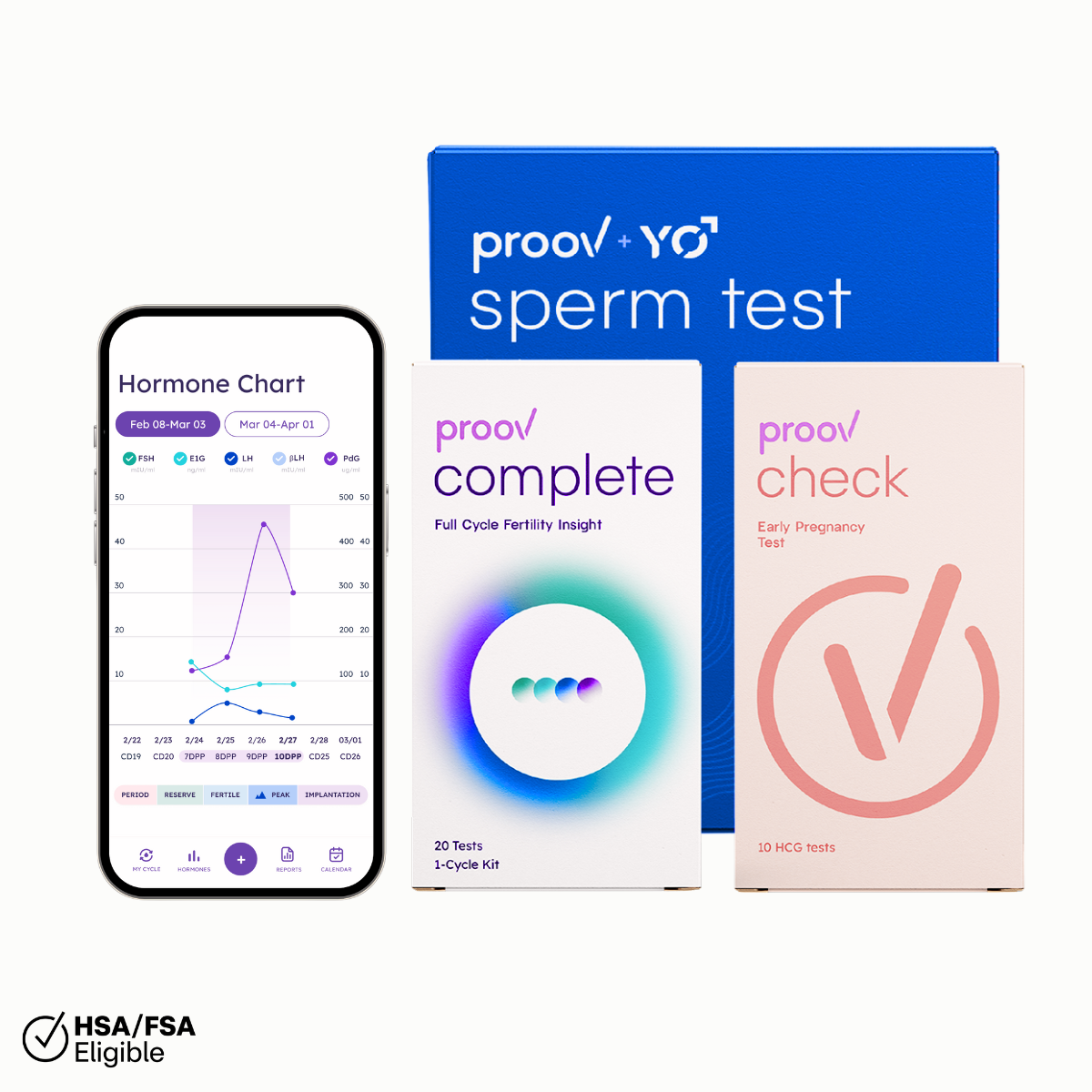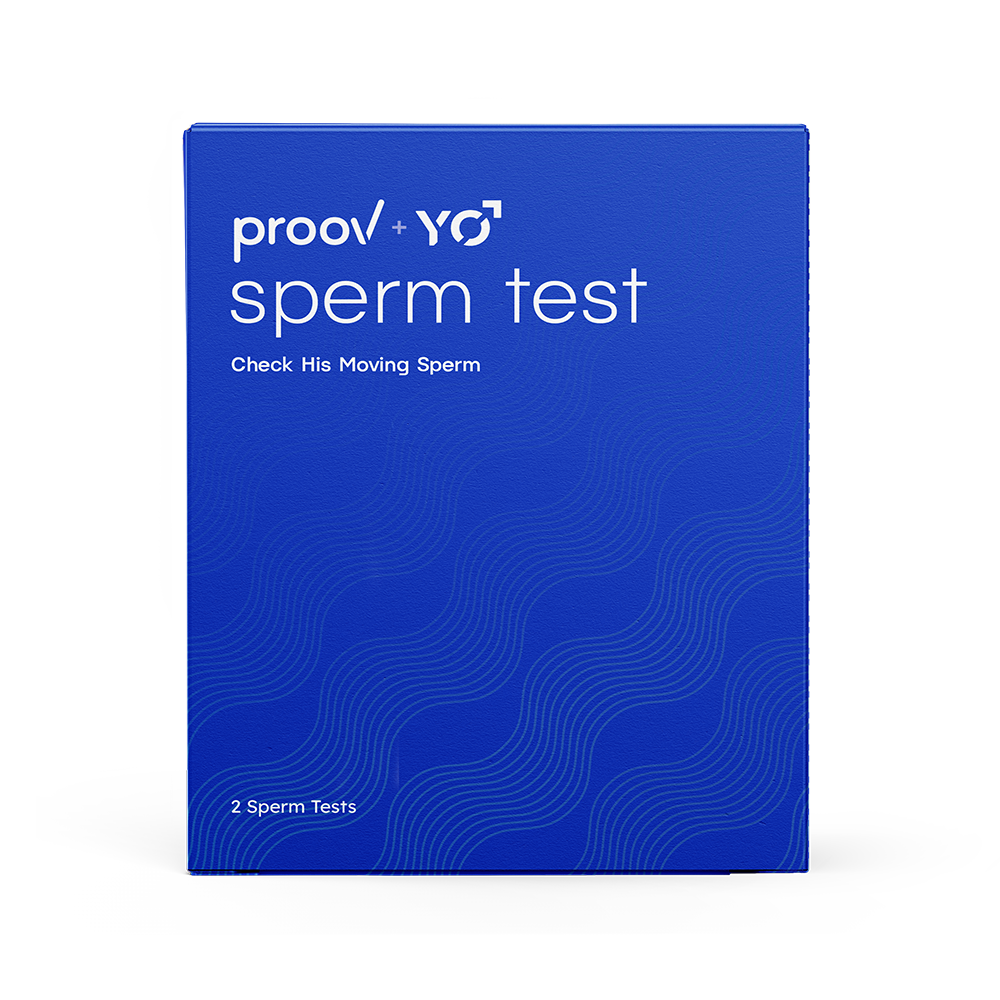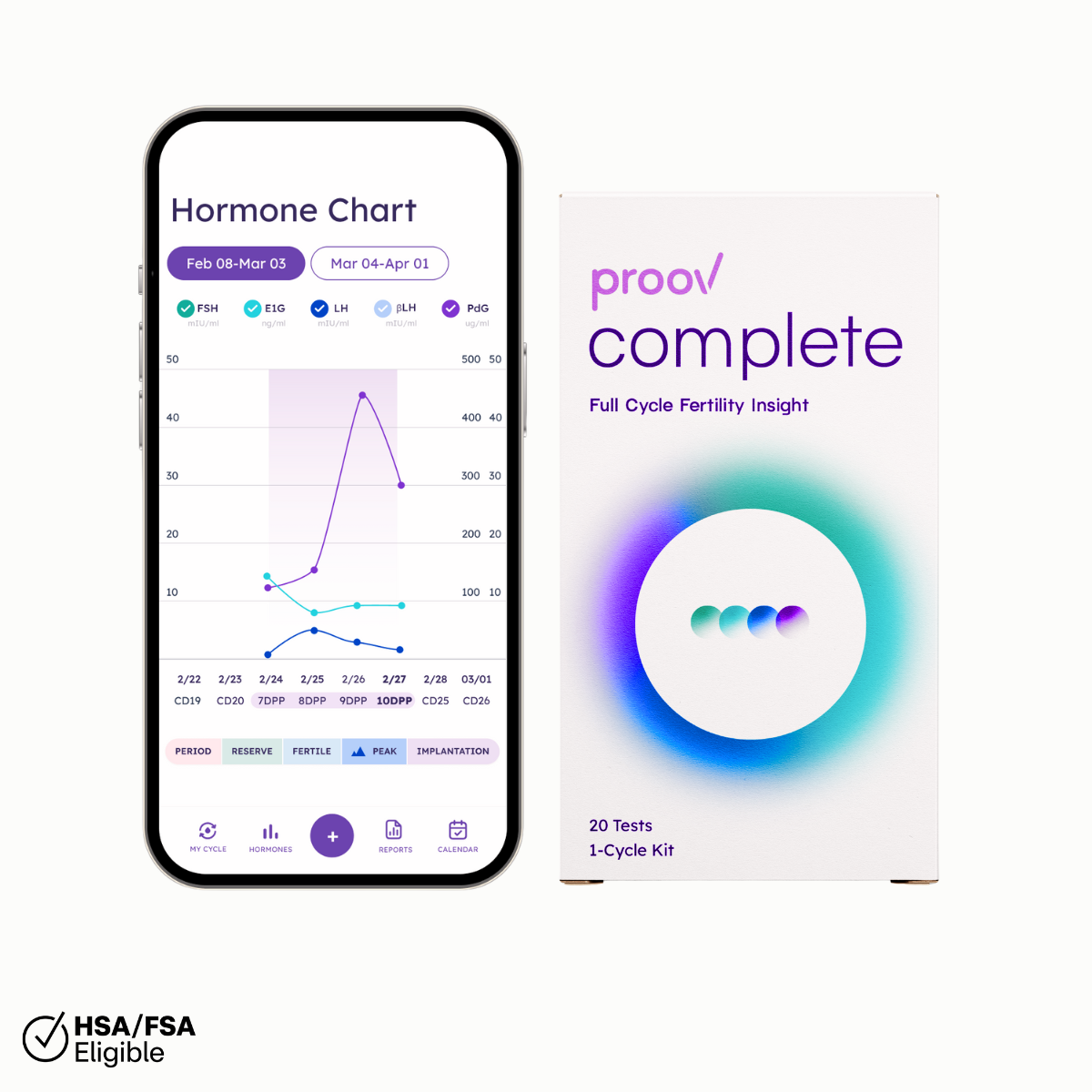**Trigger warning: This blog discusses miscarriage and early pregnancy loss.
What is a chemical pregnancy?
The term chemical pregnancy is used to describe a very early pregnancy loss (or miscarriage) in the first few weeks of pregnancy. Because it is too early to see either a fetus or gestational sac on an ultrasound, most women suspect a chemical pregnancy when they get a positive pregnancy test followed by a negative just a few days later.
Pregnancy tests measure the amount of hCG (a pregnancy hormone or “chemical”) found in urine. Since this is the only way to identify such an early pregnancy and loss, the term “chemical” is used to describe the way it was identified. It’s possible to have a chemical pregnancy without realizing it, if a pregnancy test wasn’t taken during that specific time.
For those trying to conceive, we know that even a loss this early can be devastating and very confusing.
What causes a chemical pregnancy?
Studies suggest that the causes of chemical pregnancies are the same as any other first trimester miscarriage. However, there is evidence to suggest that the most common cause is chromosomal abnormalities. When an embryo forms without the necessary chromosomes needed to divide and grow properly, the pregnancy stops developing on its own.
Outside of chromosomes, there are many other factors necessary for a healthy pregnancy that can contribute to the possibility of loss, including clotting disorders, uterine abnormalities (like a uterine septum or fibroids on the lining of the uterus), hypertension, being over- or underweight, or immunological conditions.
Sometimes something as simple as insufficient levels of the reproductive hormone progesterone may be the cause of early pregnancy loss. Progesterone is critical to early pregnancy success. This hormone is produced after ovulation, and prepares the lining of the uterus for proper implantation and development. If progesterone levels are low, it may make successful pregnancy difficult. Fertility tests that measure your PdG (a progesterone metabolite) levels can help you understand whether your body is producing the amount of progesterone needed to support a successful pregnancy. (You can read more about our Complete kit here.)
5 Signs of a Chemical Pregnancy
Is it possible to spot a chemical pregnancy when it happens? Not always. It’s estimated that 10-20% of all pregnancies end in the first few weeks, but that percentage could be much higher since early pregnancies are sometimes hard to detect. Here are a few signs that may help identify a chemical pregnancy:
Heavy, intense period
It’s possible for the period after an early loss to be heavier and more intense in regards to blood flow, due to the increased uterine lining produced by the pregnancy hormone, hCG.
More cramping
In order to pass this more developed lining and any products of conception, there may be increased cramping before or during the blood loss itself.
Late Period
The time between ovulation and the next menstrual cycle is usually fairly consistent. If this time is longer than normal and your period is late, it could be because of pregnancy. If you need help identifying ovulation, consider our Proov Predict & Confirm tests, to help pinpoint this event.
Negative pregnancy test or period after a positive pregnancy test
Typically, the most common way to identify a chemical pregnancy is to get a positive pregnancy test followed by a negative one a few days later. This indicates decreasing levels of hCG, which would normally increase with a healthy pregnancy.
Lack of pregnancy symptoms
Similarly, decreasing pregnancy hormone would be less likely to produce pregnancy symptoms, like nausea, food sensitivity, mood swings, fatigue, or breast changes.

Keep in mind that a chemical pregnancy is different from a false positive pregnancy test. To help identify between the two, a different brand of pregnancy test could be used or a blood test could measure the exact levels of hCG to rule out any errors.
What can I expect after a chemical pregnancy?
After a chemical pregnancy loss, it’s normal to experience a menstrual bleed and cycle. The bleeding itself may be heavier or more intense than their typical period, including more cramping. Ovulation is unlikely to be delayed, and cycles resume as they occurred previously.
Although the loss was early, those who experience them may feel heart broken, overwhelmed, or confused. These are all valid feelings! Talking with a partner, counselor, or friend may help process these feelings. And as someone once said, “If you saw the size of the blessing coming, you’d understand the magnitude of the battle you’re fighting.”
It’s also common not to grieve very much at all, since there was no ultrasound or heartbeat. Either response is valid and understandable.
No matter what your experience is, we have an incredible Facebook support group with thousands of women who have been through something similar. Feel free to join our safe space to share your stories or just see what others have to say.
What should I do if I suspect a chemical pregnancy?
If you suspect a chemical pregnancy, or want to investigate ways to prevent further ones, it’s best to speak with your medical provider. They can provide a blood test for hCG over the course of a few days to determine if there is hCG present and whether it is rising or falling.
They can also speak with you about what may have caused this very early loss, testing options, and what can be done to minimize the risk of it happening in the future.
Can chemical pregnancies be prevented?
Since the most common cause of chemical pregnancies may be chromosomal abnormalities, they may be difficult to prevent. However, this is not the only cause and the others should be investigated to help future pregnancies!
With low hormone levels, such as progesterone, at-home test kits offer the benefit of investigating if these levels are sufficient or might need attention. If low levels are identified, such as progesterone, they can be properly supplemented through a prescription from your medical provider.
Similarly, once clotting disorders have been identified and treated, or polyps and fibroids removed, or immunological conditions addressed, the odds of miscarriage will decrease for future pregnancies.
We know that chemical pregnancies can feel devastating, especially if you’ve been waiting for that positive result for a while. It can be hard to pick yourself back up, but empowering yourself with information can move you one step closer to the results you’re hoping for. We’ve been lucky enough to witness many success stories!














